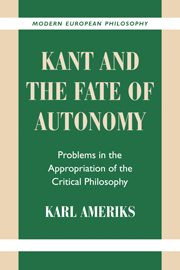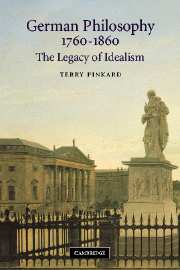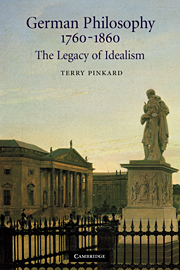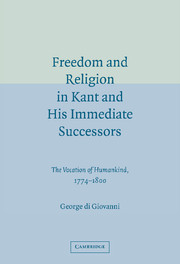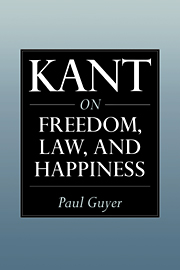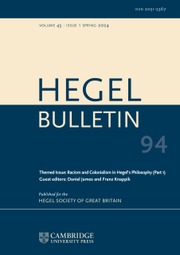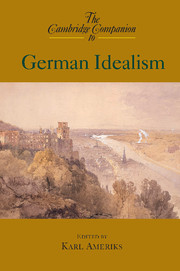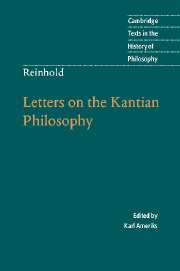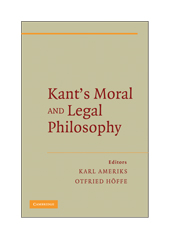Kant and the Fate of Autonomy
It has been argued that Kant's all-consuming efforts to place autonomy at the center of philosophy have had, in the long-run, the unintended effect of leading to the widespread discrediting of philosophy and of undermining the notion of autonomy itself. The result of this 'Copernican revolution' has seemed to many commentators the de-centring, if not the self-destruction, of the autonomous self. In this major reinterpretation of Kant and the post-Kantian response to his critical philosophy, Karl Ameriks argues that such a view of Kant rests on a series of misconceptions. By providing the first systematic study of the underlying structure of the reaction to Kant's critical philosophy in the writings of Reinhold, Fichte and Hegel, Karl Ameriks challenges the presumptions that dominate popular approaches to the concept of freedom, and to the interpretation of the relation between the Enlightenment, Kant and post-Kantian thought.
- Strong addition to the Cambridge Kant studies
- It provides a systematic reading of Kant that is embedded in a much broader historical context than one usually finds
- A foremost Kant interpreter offers a challenging reassesment of the reception of Kant's philosophy
Reviews & endorsements
"...[a] marvelous and provocative book..." Inquiry
"What a pleasure to encounter a book on Kant and the Post-Kantians written with passion as well as erudition." Inquiry
Amerik's book is rich, rewarding, and detailed. He combines a mastery of the German and English material...with a fine historical sensibility, a gift for clear writing, and a sharp analytical mind. He also displays a scrupulous intellectual honesty, claiming clear advantages for the 'modest' approach to Kant while noting and discussing the shortcomings of that approach." Ethics
Product details
June 2000Paperback
9780521786140
366 pages
229 × 153 × 21 mm
0.54kg
Available
Table of Contents
- Introduction: Kant and the fate of autonomy
- Part I. Kant:
- 1. Kant's modest system
- Part II. Reinhold
- 2. Reinhold's contribution
- Part III. Fichte
- 3. Kant, Fichte and short arguments to Idealism
- 4. Kant, Fichte and the radical primacy of the practical
- 5. Kant, Fichte and appreciation
- Part IV. Hegel:
- 6. Hegel's critique of Kant's theoretical philosophy
- 7. The Hegelian critique of Kantian morality
- 8. Concluding unscientific postscript.

